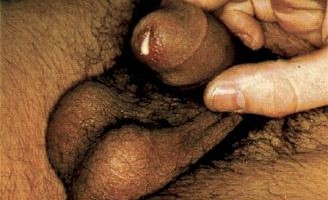Gonorrhea

Gonorrhea is caused by bacteria called Neisseria gonorrhea that grows in the warm moist areas of the reproductive tract, including the urethra, vagina, mouth, throat and anus.
How is it spread?
Gonorrhea is transmitted through semen and vaginal secretions during unprotected anal and oral sex with an infected person. Gonorrhea is easily transmitted through engaging in anal, vaginal or oral sex. It can also be transmitted by touching an infected area with your own genitals or anus. Someone with no symptoms can still transmit it. Gonorrhea is not transmitted through such casual contact as hugging, shaking hands, sharing food, using the same eating utensils, drinking from the same glass, sitting on public toilets, or touching door knobs.
What are the symptoms?
- Need to urinate (pee) more often
- Discharge from the genitals, which may be yellow or white, watery or thick (see picture)
- Burning or pain when you urinate (pee) or have a bowel movement
- Or a person may not experience any symptoms


How is it treated?
Gonorrhea is now treated by a large number of new and very potent antibiotics. Depending on your healthcare provider, administering of treatment can include an intramuscular injection or a series of pills. It is important to see your healthcare provider for a follow-up visit 7 days after treatment to re-check cultures and confirm the cure of infection.
How can infection be prevented?
Abstinence is the only 100% effective way of preventing gonorrhea, however if you choose to engage in sexual activities and are unsure if you or your partner is possibly infected, consistent and correct use of condoms can effectively help reduce the risk of transmission. Washing your hands right after sex can also reduce risk.
If you think that you or someone you know may have been infected with gonorrhea click here for testing sites. If you’re sexually active, sign-up for free STD testing reminders via email, text or both at WeAllTest.com. If We All Test, we can help eliminate syphilis and other STDs in our community.